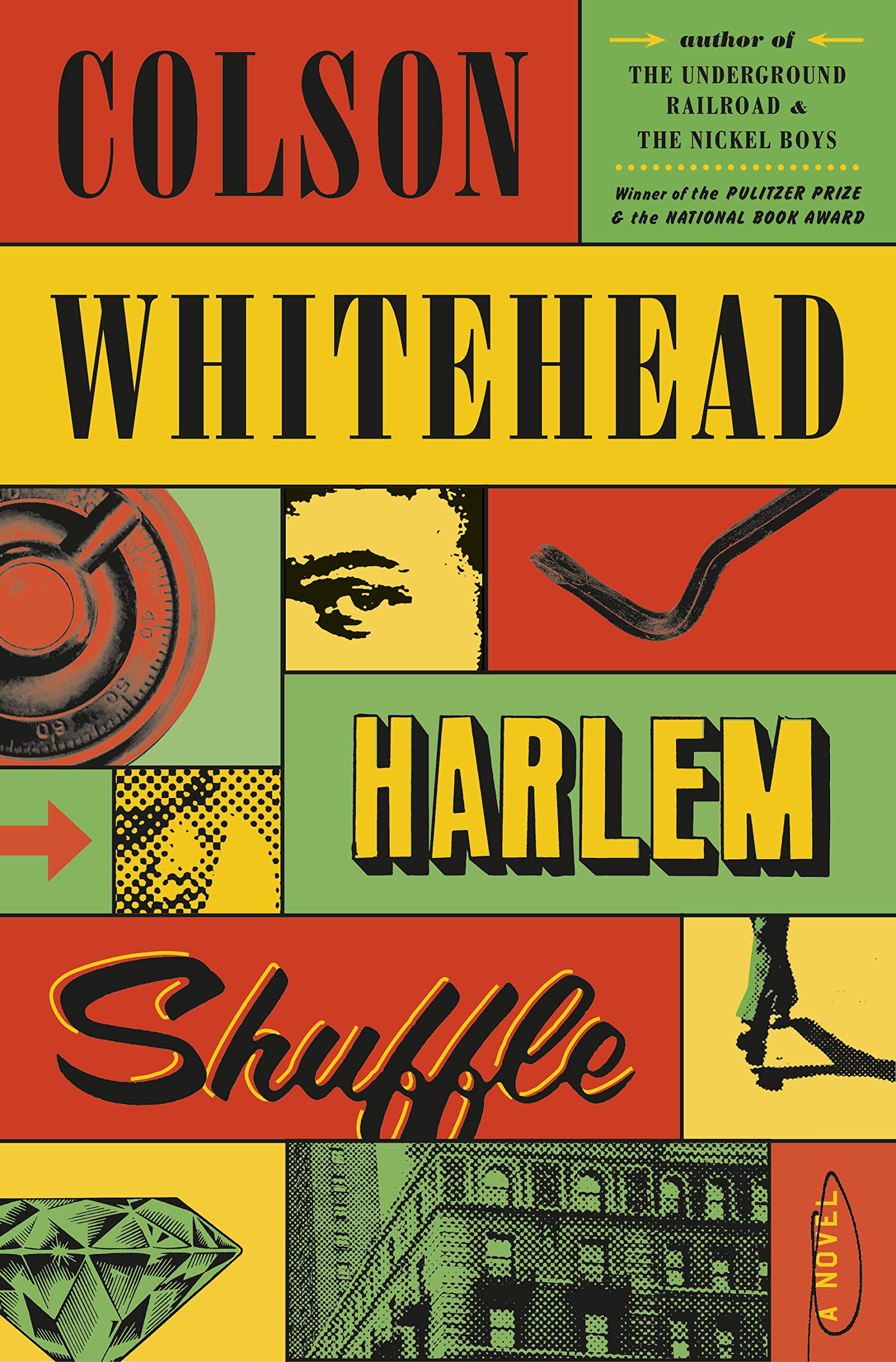Harlem Shuffle by Colson Whitehead (Doubleday)
Whitehead has proven himself a master many times over in a variety of genres, recently earning back-to-back Pulitzers. It’s Harlem Shuffle, his take on the midcentury heist novel, that proves to be his best yet.
It’s one of those books you can hang out in. On re-reading, each page offers familiar pleasures and elicits deeper appreciation. It’s like a favorite movie you re-watch for the dialogue and the little nods to the future you didn’t know about the first time. For example, early in the story, when furniture store proprietor and sometimes-fence Ray Carney gets roped into a heist scheme by his crookeder cousin Freddie, Freddie lists the members of the crew, to which Ray responds, “What about this man Pepper,” and Freddie goes, “You’ll see.” Initially, the passage reads like simple foreshadowing, and Whitehead builds on that impression with his first description of the character a few pages later (“He had gravel eyes that made you stare at your feet”). But this man Pepper, who up to now carries little more than a name and perhaps some consequential muscle, ends up playing a large and evolving role in the story years after the initial heist (the timeline spans 1959–1964, minus a few economical flashbacks).
The story begins with Carney’s unwitting involvement as fence for an armed robbery gone wrong, which puts him on the radar not only of the police but the big-time criminals. In the aftermath, he ends up having a corrupt cop and extortionist mobsters on his payroll, though he keeps one foot and more than half of his soul on the reputable side of the line separating the business class of 125th St. from its underbelly. The novel’s got a few capers, but it’s really about the characters and about race, as Whitehead chronicles the shifting fortunes of Black Harlem after white Downtown begins to integrate. Central to it all is hard-working family man Ray, who does what he can and what he knows to move his star higher up over the skyline, an effort Whitehead dramatizes through Carney’s interest in the city’s greatest currency, real estate, and which is tested after a gentleman’s agreement turns sour, prompting him to call on Pepper’s services for a payback scheme.
Throughout, Whitehead gives great care to Ray and Freddie and the others, and, with humor and poignancy, effects on them the ravages of an unsentimental city. It’s a shaggy dog story full of taut scenes, a tender look at the bonds of family, and an inspired portrait of a neighborhood in flux. Not only is it Whitehead’s best, it’s also the best New York novel in years.



